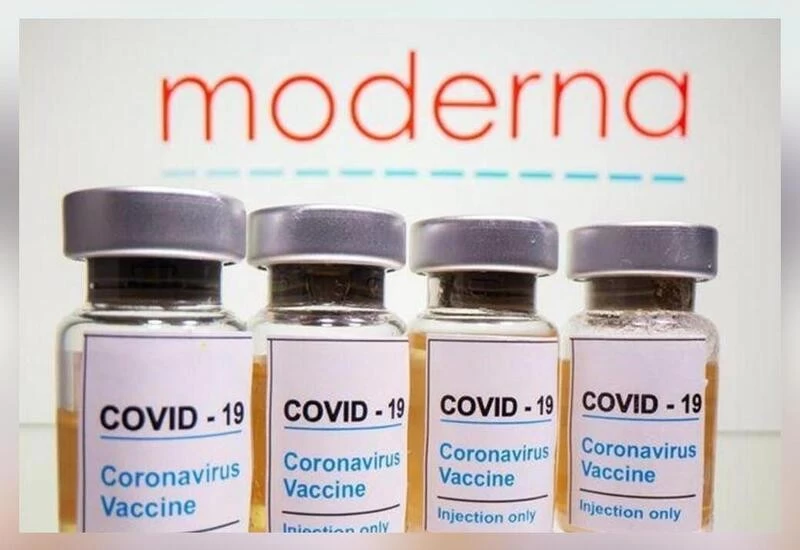Washington: US-based pharma company Moderna Inc said it will apply for US and European emergency authorization of its COVID-19 vaccine on Monday based on full results from a late-stage study showing its vaccine was 94.1% effective with no serious safety concerns.
The drug company also reported a 100% success rate in preventing severe Covid-19 cases. The filing sets Moderna's product up to be the second vaccine likely to receive US emergency use authorization this year after Pfizer-BioNTech's vaccine candidate, which is 95% effective.
The trial results come at a time when the coronavirus pandemic has infected over 63 million people and killed more than 1.4 million across the world.
Of these, US hospitals have been stretched to the limit as the nation has seen more than 160,000 new cases per day and more than 1,400 daily deaths.
"A continuous review of safety data is ongoing and no new serious safety concerns have been identified by the company," Moderna said in a statement.
Of the 196 volunteers who contracted COVID-19 in the more than 30,000-person trial, 185 had received a placebo versus 11 who got the vaccine. The company reported 30 severe cases - all in the placebo group - which means the vaccine was 100% effective at preventing severe cases. The trial included one COVID-19-related death in the placebo group.
Moderna said the vaccine's efficacy was consistent across age, race, ethnicity and gender demographics. The 196 cases included 33 adults over 65 and 42 volunteers from racially diverse groups, including 29 Latinos, 6 Blacks, 4 Asian Americans and 3 multiracial participants.
The vaccine, mRNA-1273 met its primary efficacy endpoint in the first interim analysis of the Phase 3 COVE study with a vaccine efficacy of 94.5% earlier this month.
Shortly after gaining emergency use authorization, Moderna expects the vaccine to be shipped to designated distribution points throughout the United States by the government's Operation Warp Speed program and McKesson Corp, a drug distributor contracted by the U.S. government.
In addition to filing its US application, Moderna said it would apply for conditional approval from the European Medicines Agency, which has already begun a rolling review of data, and would continue to talk with other regulators conducting rolling reviews.
It also announced that the FDA’s Vaccines and Related Biological Products Advisory Committee (VRBPAC) meeting to review the safety and efficacy data package for mRNA-1273 will likely be scheduled for Thursday, December 17.
Shortly after gaining emergency use authorization, Moderna expects the vaccine to be shipped to designated distribution points throughout the United States by the government's Operation Warp Speed program and McKesson Corp, a drug distributor contracted by the U.S. government.
Its distribution is expected to be easier than Pfizer's because while it needs to be stored in a freezer, it does not require the ultra-cold temperature needed by Pfizer's vaccine.
Moreover, Moderna plans to start a new trial to test the vaccine in adolescents before the end of the year, followed by another trial in even younger volunteers early in 2021, reported news agency Reuters. Other vaccine makers have said they are studying their vaccines in young people as well.
The US-based firm also said it was on track to have about 20 million doses of its vaccine ready to ship in the United States by the end of 2020, enough to inoculate 10 million people.
"By the end of 2020, the Company expects to have approximately 20 million doses of mRNA-1273 available in the U.S. The Company remains on track to manufacture 500 million to 1 billion doses globally in 2021," Moderna stated.
The shares extended their gains to as much as 12% before US markets opened, hitting a record of $142.85. They have risen more than sixfold since the year began.
Britain has also secured an additional two million doses of Moderna's Covid-19 vaccine candidate, the government said in a statement on Sunday.
Both the Moderna and Pfizer vaccines proved more effective than anticipated and far superior to the 50% benchmark set by the U.S. Food and Drug Administration.
Both the Moderna and Pfizer vaccines rely on a technology called messenger RNA that turns the body’s cells into vaccine-making factories. Messenger RNA has never before been used to develop an approved vaccine. Moderna has co-developed the mRNA candidate with the National Institutes of Health.
Britain's AstraZeneca has announced an average efficacy rate of 70% for its vaccine and as much as 90% for a subgroup of trial participants who got a half dose first, followed by a full dose. But some scientists have expressed doubts about the robustness of the 90% efficacy figure for the smaller group.


